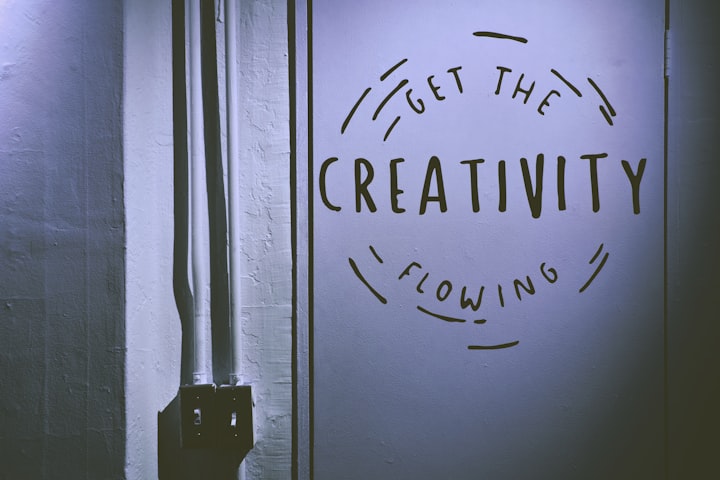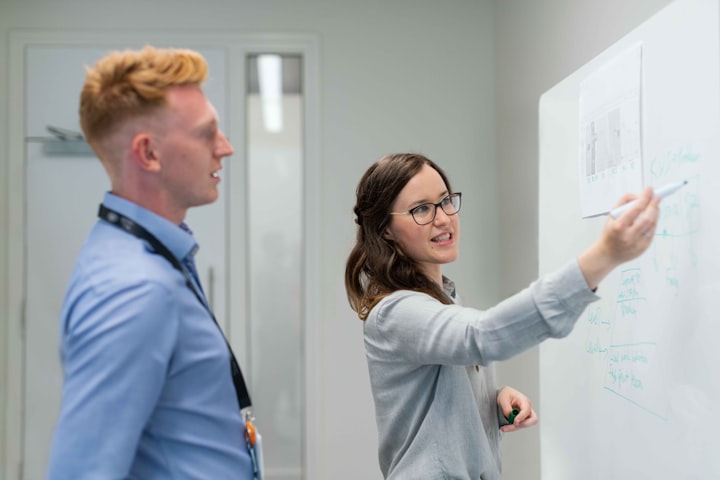5 Ways to Improve Your Creative Thinking
How to Be More Creative ?

"You can't dry up creativity. The more you use it, the more you will have." - Maya Angelou
Do you have a creative mind? Do new ideas come to you spontaneously, or conversely, are you not often inspired?
Using creativity - contrary to popular belief - is not only useful for artists, composers or writers. It is also an indispensable tool in our daily life, to find solutions to our problems, to improve our projects and objectives, and of course to bring something new out of our usual routine.
According to cognitive psychologist Robert J. Sternberg, creativity is "a process that produces something both original and worthwhile."
You may wonder if the creative process is innate or learned. So I ask you: have you ever been able to find a new way to solve a problem? The answer is yes, of course.
Just as you can learn to play an instrument, or learn to speak another language, you can learn to solve your problems differently. We all have creative potential.
Creativity is a skill that we can develop over time by practicing it. To help you become a more creative person, we will explore some new ways to improve your creativity.
1. Make sure you have explored the topic thoroughly
"Creativity is seeing what others see and thinking what no one else ever thought." - Albert Einstein.
Reading extensively on the subject is essential to stimulate your creativity. Innovating also means knowing enough about the world around you and understanding how things work. The more you know, the more you will integrate new perspectives into your own.
You will then be able to connect and combine very different ideas with each other, all by simply expanding your knowledge base about the area in which you want to be more creative.
Don't settle for just one point of view on the issue, keep an open mind and also read the less popular opinions on the subject, the critiques and innovations of others.
When you have the opportunity to apply your knowledge, you can then cross-reference the information with what you already know, and form several coherent ideas or solutions to the situation at hand.
Use your imagination, ask yourself how your family, colleagues, or friends would have done it. Allow yourself to imagine the problem or situation already solved, and then go backwards from there to see what could have created such a result. Don't rule out any hypothesis or idea, the important thing is simply to allow your creative thinking to flow.
2. Allow others to help you
"You use a glass mirror to see your face. You use works of art to see your soul." - George Bernard Shaw
Talk to the people around you. Ask them for their opinion on a subject, involve them in solving your problem and you will often discover new perspectives that you hadn't considered before. You don't need to ask experts in the field to come up with good ideas either, everyone is capable of bringing them to you.
Everyone's mind is different and the influences that inspire others can inspire us in a whole new way. Someone may make a comment that seems obvious to them given their experience, but which you might never have thought of. Involving others will lead to a blending of influences and ideas, which will stimulate everyone's creativity.
Also, don't be ashamed to talk about what's blocking you today. Perhaps those around you have also faced a similar situation without your knowledge, and this will give you another perspective on the matter at hand. You can also share your problem with people online, on specialized forums, there again you will be able to get the opinion of people from all walks of life.
Sometimes, you just need to change your environment and new ideas will come to you spontaneously. If you can't think of a question at work, think about it at home on the couch. Or, conversely, think about that question at home, in a free moment at work.
3. Curiosity is the source of creativity
“A creative life is an amplified life. It's a bigger life, a happier life, an expanded life, and a hell of a lot more interesting life” - Elizabeth Gilbert
Creativity needs curiosity to develop. Whenever you are faced with something you don't know, do your research. Read books or learn skills that have always attracted you. Ask questions of people who cover topics that appeal to you.
The more information you have in your mind, the more you can create those mental connections that will spark that creativity in your daily life. Also, don't limit yourself to what is asked of you or what you think you should do, look at the goal beyond the task at hand. It may be as simple as taking a different route home, or trying a new recipe.
Routine is nice, but it won't allow your creativity to grow. Curiosity is also about stepping out of your comfort zone to explore what's out there beyond what you know. Diversifying your interests, traveling and discovering new places will again help you develop your creative instincts.
4. Don't judge your ideas too hastily
“The worst enemy to creativity is self-doubt.” - Sylvia Plath
Creativity can't be locked in a box and taken out every time we need it. To grow, it needs freedom, and sometimes your ideas will seem crazy, impractical or completely stupid. This is perfectly normal and is the way creativity expresses itself.
It is only when creativity has finished expressing itself that we can then decide what to put in place, and what to discard. So feel free to list all the ideas that come to you in the moment when you think about the topic at hand. Let your creativity run wild!
Even the "bad" ideas may be useful when you combine them with others later, but you'll never know if you throw them in the trash from the start. Here, it's important to focus on quantity rather than quality.
According to a former advertising executive James Webb Young, "an idea is nothing more or less than a new combination of old elements." You can tweak your ideas, clone them, combine them until you get a result you are happy with.
You can also use a mind-map to organize your ideas and visualize them on paper. Sometimes you just need to draw what comes to mind for it to take shape, don't limit your creativity to words only.
5. Don't try to force yourself
“Creativity is inventing, experimenting, growing, taking risks, breaking rules, making mistakes, and having fun.” - Mary Lou Cook
This may seem counterintuitive, but if you're still having trouble getting ideas to flow then move on. Take the time to work on other things, so when you return to that project in question then you can approach it with fresh eyes. You'll be able to see what needs to be improved or make connections with ideas that didn't occur to you.
We would all like to provoke creativity on demand, but it doesn't work in reality. If you are feeling tired, stressed or depressed it can impact your ability to make associations and come up with new ideas, so take time to rest or relax before a creative exercise.
At the same time, learn to appreciate the constraints of time, effort and money. These constraints will allow you to develop creative solutions to your problems that you might not have done otherwise. So use every opportunity to continue to grow your creativity and you will discover an unsuspected field of possibilities within yourself.
Bonus: The 30 Circles exercise
Robert McKim, professor of mechanical engineering at Stanford University, invented the 30 Circles exercise to encourage divergent thinking (i.e., considering several possible solutions to the same problem) and to go beyond our habit of keeping only the "best" idea.
The interest of this exercise is to develop your creativity by expressing it. To do this, transform each of these circles into a recognizable object in 3 minutes maximum, with a pencil or a felt-tip pen.
About the Creator
Emma Randy
Sharing the best self-improvement tips and personal growth ideas that will help you build a fulfilling life.
My WebSite






Comments
There are no comments for this story
Be the first to respond and start the conversation.